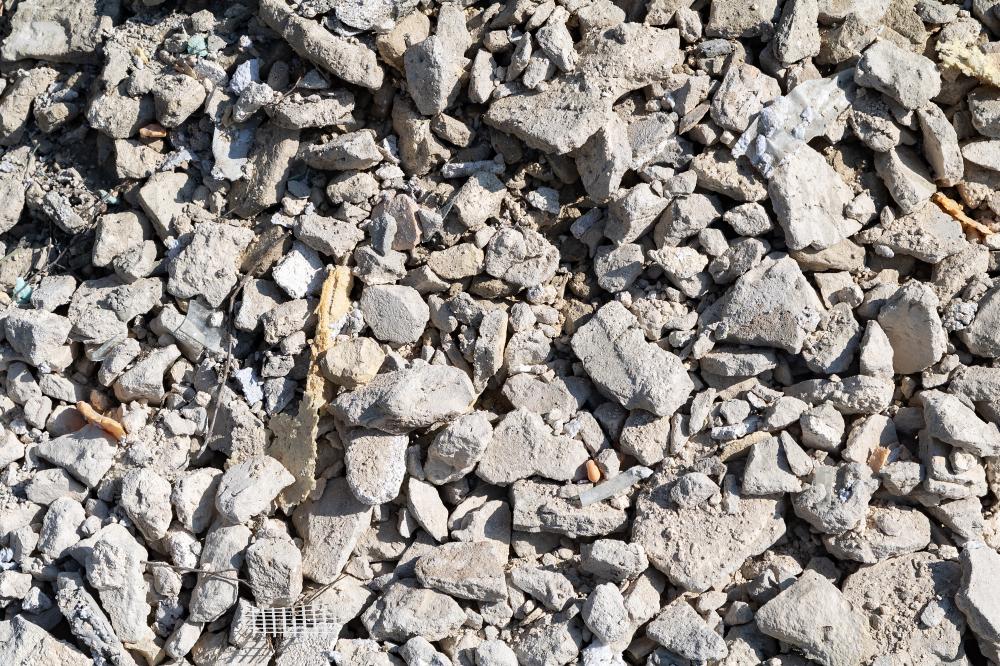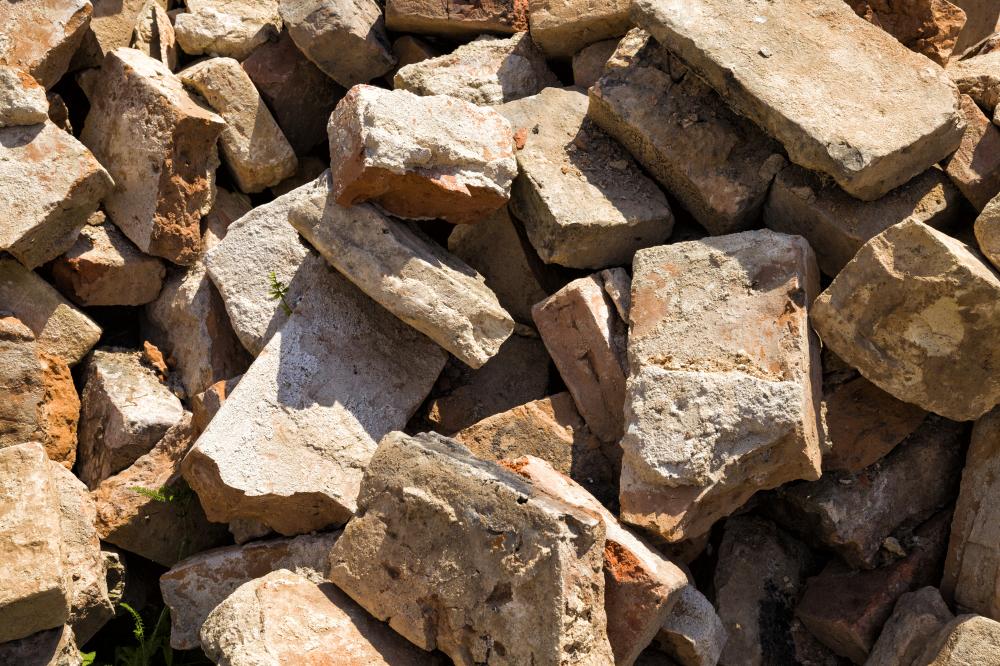The Importance of Recycling Concrete
In today’s fast-paced world, recycling has become a pivotal part of sustainable practices, and concrete recycling is no exception. With construction projects constantly on the rise, recycling concrete is crucial for reducing waste and conserving natural resources. By reclaiming used concrete, companies like MK Excavation contribute to environmental sustainability and offer significant economic benefits.
The process of recycling concrete involves breaking down existing, unusable concrete into smaller materials. These recycled aggregates can then be repurposed for various construction projects, reducing the need to mine new aggregates. This not only preserves the natural landscape but also reduces energy consumption and greenhouse gas emissions associated with traditional concrete production.
Recycling concrete supports landfill diversion. By repurposing demolished concrete, less material is sent to landfills, effectively reducing the environmental footprint of construction projects. This sustainable practice aligns with the growing global emphasis on eco-friendly initiatives.
Benefits of Recycling Concrete
The benefits of recycling concrete extend beyond environmental conservation. One of the primary advantages is cost savings. For construction companies and contractors, recycled concrete materials are often more cost-effective compared to purchasing new aggregates. This affordability can make a significant difference in overall project budgets.
Utilizing recycled concrete also enhances project flexibility. Recycled aggregates can be customized to meet specific project requirements, from road base materials to landscaping mulch. This adaptability allows construction companies to tailor their materials to suit different applications without compromising quality.
Moreover, by choosing to recycle concrete, companies can enhance their reputation as environmentally responsible organizations. This positive image can attract eco-conscious clients and provide a competitive edge in the market.
Common Methods for Recycling Concrete
There are several methods employed in the process of concrete recycling, each tailored to specific project needs. One widely used technique is called crushing. It involves the use of heavy machinery to break down concrete into desired aggregate sizes. This process makes it easier to sort and reuse the materials effectively.
Another method is the use of portable crushing units. These units can be transported to different sites, making them ideal for projects with limited space or those in remote locations. They provide a versatile option for on-site recycling, reducing the need to transport materials to off-site facilities.
Screening is also an important part of concrete recycling. This process separates different sizes of aggregates, ensuring the recycled materials meet necessary specifications. Through effective screening, the quality and performance of recycled aggregates are optimized for various applications.
Misconceptions About Recycling Concrete
There are several misconceptions surrounding concrete recycling, which can hinder the adoption of this practice. One common misunderstanding is that recycled concrete is inferior in quality to new materials. In reality, when processed correctly, recycled concrete can match or even exceed the standards required for specific construction applications.
Some individuals believe that recycling concrete is not cost-effective. However, as noted earlier, the use of recycled aggregates can significantly reduce project costs, making it an attractive option for budget-conscious contractors. Additionally, the long-term environmental benefits far outweigh any initial investments in recycling infrastructure.
Another misconception is that recycled concrete is only suitable for limited uses. While it is true that certain projects may require specific aggregate types, recycled concrete is versatile and can be adapted for a wide range of applications, from road construction to landscaping.
How MK Excavation Excels in Concrete Recycling
MK Excavation stands out in the field of concrete recycling, offering unmatched expertise and commitment to quality. The company’s dedication to sustainable practices is evident in its rigorous recycling processes and adherence to the highest industry standards. This commitment ensures that every project benefits from the best available recycled materials.
The team at MK Excavation is comprised of highly skilled professionals with extensive experience in managing complex recycling operations. Their expertise enables them to navigate the unique challenges of each project, delivering customized solutions that meet the specific needs of their clients.
MK Excavation uses state-of-the-art equipment for concrete recycling, allowing for efficient processing and high-quality recycled aggregates. The company’s investment in advanced technology and training ensures that their recycling services remain at the forefront of industry innovation.
With a focus on customer satisfaction, MK Excavation guarantees that clients receive not only top-quality recycled concrete but also exceptional service throughout the project lifecycle. Their commitment to excellence and reliability sets them apart from other excavation companies in Oklahoma City.
Challenges in the Concrete Recycling Industry
The recycle concrete near me industry faces several challenges that can impact its growth and efficiency. One of the primary obstacles is the availability of suitable recycling facilities and equipment. Not all regions have adequate infrastructure to support large-scale recycling operations, which can limit access to quality recycled materials.
Another challenge is the regulatory landscape surrounding concrete recycling. Compliance with environmental regulations and waste disposal requirements can be complex and vary from region to region. Companies like MK Excavation must navigate these regulations carefully to ensure environmentally responsible and legally compliant operations.
Additionally, market demand for recycled concrete can be unpredictable, affecting the financial viability of recycling projects. It is important for companies to continuously educate and persuade stakeholders about the benefits of recycling concrete to maintain a steady demand for these materials.
Future Trends in Concrete Recycling
The future of concrete recycling is promising, with several exciting trends on the horizon. One significant development is the integration of advanced technologies, such as artificial intelligence and machine learning, to optimize recycling processes and improve material quality. These innovations can enhance efficiency and reduce labor costs, making recycling more attractive to construction companies.
Another emerging trend is the use of recycled concrete in sustainable construction practices, particularly in the development of green infrastructure. Incorporating recycled materials into environmentally friendly building projects aligns with global efforts to reduce carbon emissions and conserve natural resources.
Lastly, the circular economy model is gaining traction in the construction industry, emphasizing the importance of reusing and repurposing materials. Concrete recycling plays a crucial role in this model, facilitating the transition to a more sustainable and resource-efficient construction industry.
How do I get rid of a lot of concrete?
Disposing of large amounts of concrete can seem like a daunting task, but there are practical solutions. At MK Excavation, we advise property owners to consider recycling as a viable option. You can hire a professional service like ours to break down the concrete into manageable pieces, which can then be transported to a recycling facility. Often, recycled concrete can be repurposed for other construction projects, making it an environmentally friendly choice.
Alternatively, some local governments provide concrete disposal services through designated drop-off points, although these services may vary by location. It’s a good idea to contact your local waste management authority to understand the options available in your area.
Another possibility is to repurpose the concrete on-site. It could serve as a base for landscaping projects or be used to create retaining walls or garden pathways. This approach not only saves on disposal costs but also adds unique character to your outdoor space.
Ask yourself: Could this material have a second life in my current project?
What can I do with an old concrete slab?
An old concrete slab doesn’t have to be an eyesore or a waste. At MK Excavation, we’ve seen creative solutions that turn a mundane slab into an asset. For instance, breaking the slab into chunks and using them for garden edging or stepping stones creates a rustic appearance. They’re also great for erosion control in landscapes.
If you’re up for a DIY project, consider staining, painting, or overlaying the slab to refresh the look. It can become a stunning patio or a feature walkway with the right treatment. However, if the slab is beyond your skill level to repurpose, recycling is always a smart choice. We can help transport it to a facility where it can be crushed and reused, contributing to a circular economy.
Think creatively: How might this concrete enhance your outdoor space?
Can concrete be recyclable?
Absolutely, concrete is highly recyclable. In fact, at MK Excavation, we specialize in transforming old concrete into new possibilities. The process typically involves crushing the concrete into aggregate sizes, making it suitable for various construction uses like road base materials or new concrete production.
Recycling concrete not only reduces the need for new aggregates, which preserves natural resources, but it also decreases the environmental footprint of concrete production. By reducing landfill waste, recycling concrete contributes to a more sustainable construction industry.
Consider this: How can embracing recycled materials impact your environmental goals?
How to get rid of a pile of concrete?
Managing a pile of concrete may seem overwhelming, but with the right approach, it can be simplified. Start by considering professional services like MK Excavation, where our team can assist with breaking and transporting the material to recycling facilities.
If you’re handling it yourself, renting a dumpster specifically for heavy materials might be a practical step. Check regulations, as some waste management services have specific guidelines for concrete disposal.
Alternatively, listing the concrete on local exchange networks can sometimes be effective. DIY contractors or hobbyists often seek free materials for small projects. This method not only removes the concrete but benefits the community by providing free resources.
Reflection: What community connections might you leverage to turn waste into opportunity?
What are the environmental benefits of recycling concrete?
Recycling concrete offers numerous environmental benefits, a key focus for MK Excavation. It significantly reduces the need to extract new raw materials, preserving natural landscapes and decreasing mining-related damage. Recycling also cuts down on the energy required to produce new concrete, which in turn lowers carbon emissions.
Furthermore, by diverting concrete from landfills, we reduce the strain these facilities experience, contributing to more responsible waste management. This practice aligns with global eco-friendly initiatives and helps companies improve their environmental impact.
Consider the broader impact: How does reducing landfill waste contribute to a sustainable future?
Is recycled concrete as strong as new concrete?
Recycled concrete can be just as strong, if not stronger, than new concrete, provided it is processed correctly. At MK Excavation, we ensure that recycled aggregates meet stringent industry standards, allowing them to perform comparably to new materials in various applications.
In many cases, the strength of recycled concrete is sufficient for its intended use, such as road bases or foundation backfill. Advanced techniques in processing and screening play a crucial role in achieving the desired quality and durability.
Think about project requirements: How might recycled concrete meet or exceed your construction needs?
Resources
- Environmental Protection Agency – The EPA provides information on environmental issues, including recycling practices and waste management.
- American Concrete Institute – The ACI offers resources and guidelines related to concrete production, design, and recycling.
- Carnegie Mellon University – CMU conducts research on sustainable construction practices, including concrete recycling.
- National Ready Mixed Concrete Association – NRMCA provides resources on concrete production, recycling, and sustainability initiatives.



